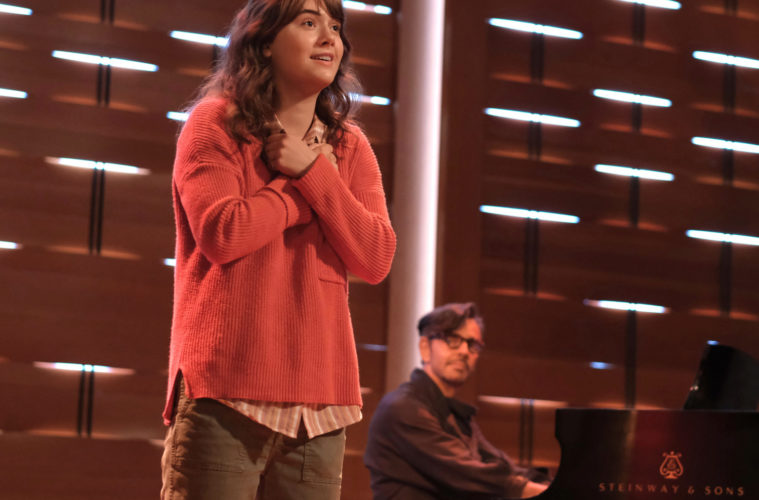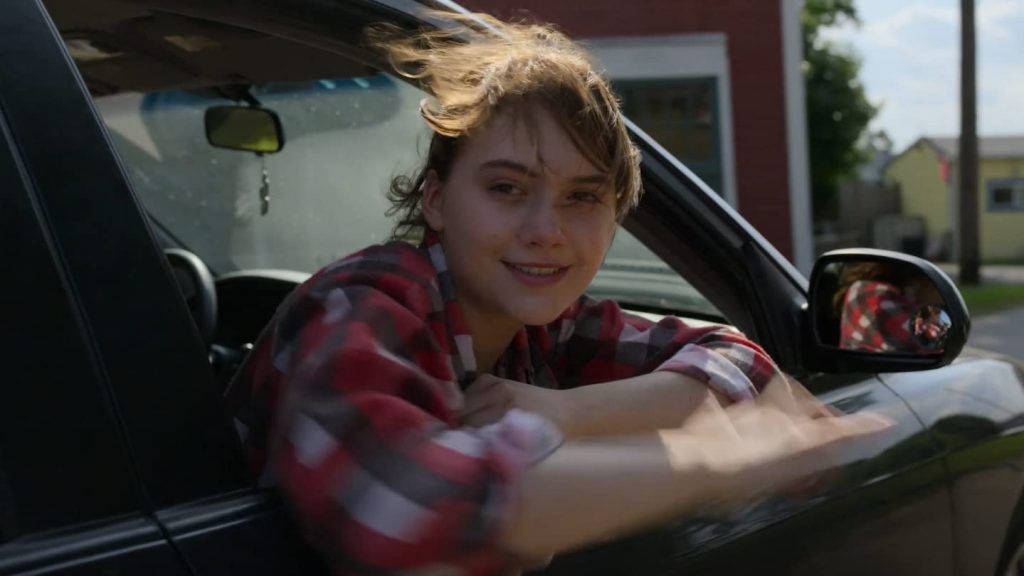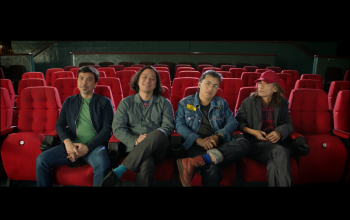CODA is this year’s Oscar-winning film. Guest contributor Roy Narra strings together what a non-CODA (child of deaf adult) audience feels about this film.
Ruby Rossi is not a popular girl in high school, a familiar setting in films wherein mean girls rule the hallways and bully the film’s protagonist. She went to school with a ragged sweatshirt, which she earlier wore on her fishing trip with her father and brother. The girls quickly ridiculed it. Moments later, the viewers were introduced to Ruby’s secret gaze: Miles, a tall, skinny boy who’s with the popular clique.
Before this, the viewers learned that Ruby’s father and brother are both deaf. Later, we learn that her mother is also deaf, making her the only hearing child in the family. What most people, even her family, don’t know is that Ruby has a gift of amazing vocals. Overcame with her fear of being ridiculed, Ruby stormed off her choir audition, went to the lake, and belted a beautiful rendition of Happy Birthday with the water and cliff as her only audience.
In CODA (child of deaf adults), director Sian Heder rested on the tropes, unoriginal scenarios, and storylines that, admittedly, were widely used in cheesy, family-friendly Disney Original Movies: a girl and a boy love story; the protagonist finding “her truth”; a family restricting their child’s dream as their way of protection.
Ruby is faced with various dilemmas: Is she going to pursue a prestigious scholarship in Berklee College of Music, or is she going to sacrifice it in order to further help her deaf family? But what about her personal dreams? Is she selfish or reasonable? Such questions are overused in dozens of movies.
Did the film fail, then? The opposite. Most films falter as they resort to familiar yet unoriginal storytelling but CODA, being unapologetically formulaic, propelled itself to be a pleasing, endearing story of familial love, proving that after all the conflicts, your family stays with you. With great performances from the cast, particularly by the Rossi family, CODA is a heartwarming family story equipped with R-18 jokes nuanced on the experiences of the deaf community.
I am not part of the deaf community as I speak from the perspective of an observer. It is not my position to say that Heder was giving an accurate and honoring honorable representation of the community that is not that usually portrayed on the silver screen.
But as an ordinary moviegoer, I can say that CODA portrayed the members of the deaf community in a different and liberating way compared to the shy, timid, and repressed characterization of deaf characters in films like Kung Fu Hustle (2004), Babel (2006), The Shape of Water (2017) and other films. Frank and Jackie are liberal-thinking parents who are not afraid to talk about sex to their children. Leo is confident enough to go on Tinder, drink at bars, and hook up. The Rossi family is not the role model for the deaf community and they’re not even trying to be one. They’re messy, crass, and even embarrassing to Ruby sometimes. And it was heartwarming to see the family be together at the dinner table, school gymnasium, and other spaces where they can express and spread their familial love.
CODA, an independent film purchased by Apple in Sundance Film Festival for $25 million,made a historical achievement at the 94th Academy Awards after winning the coveted Best Picture, making it the first streaming film and the first film with a dominant deaf cast to do so. It is not a conventional choice for the top prize considering the previous winners were tackling broader societal themes like capitalism, racism, and homophobia. Still, CODA’s win proves that a film with a simple, yet resonating story can get the hearts of the Academy and the public.




